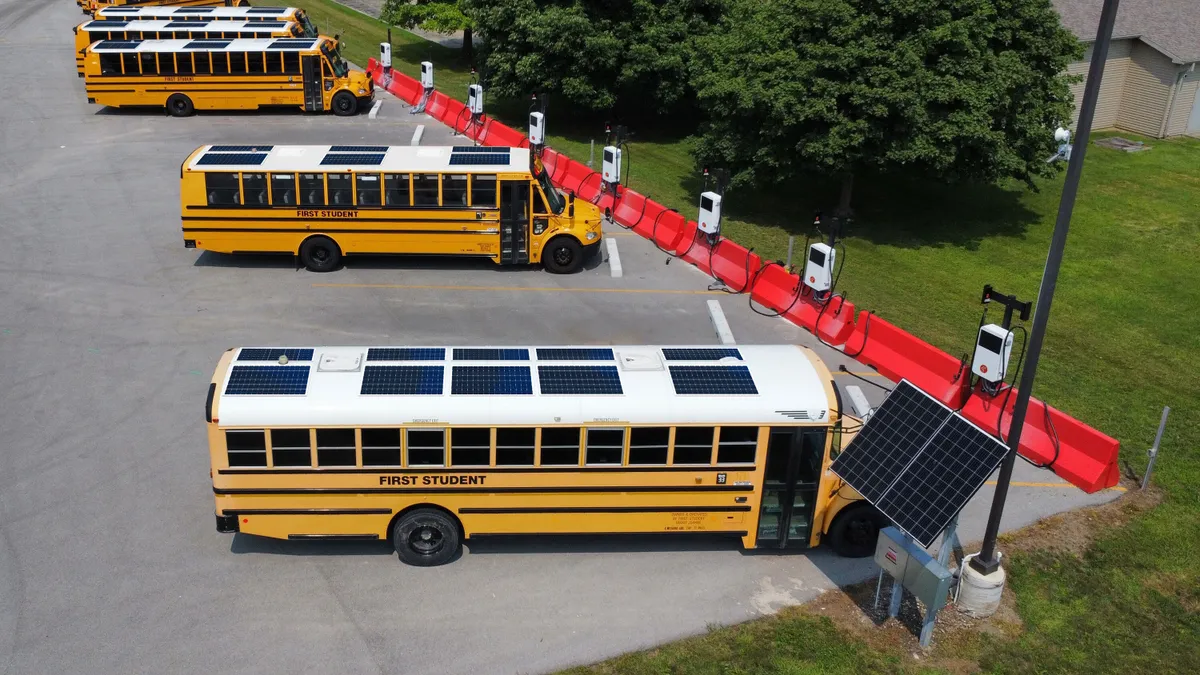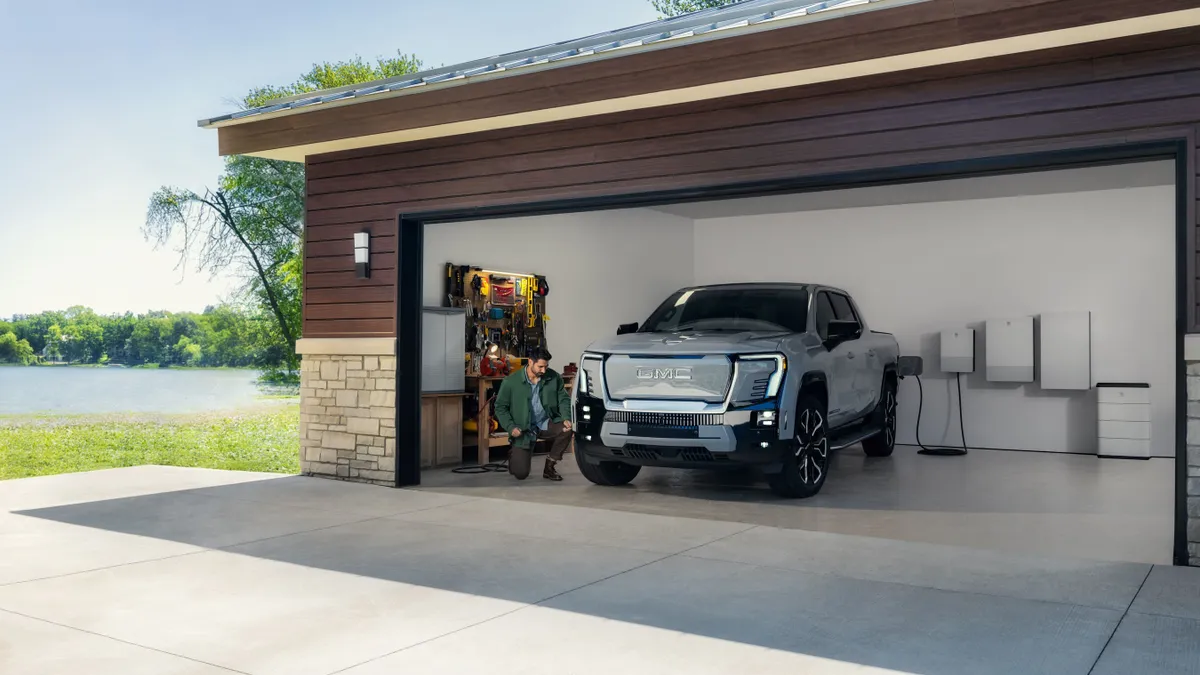As we usher in a new year, the trends that shaped cities in 2018 are bound to have a ripple effect on the innovations that bloom in 2019.
Now that dockless vehicles are a common offering in most metropolitan areas across the U.S., what new transportation options will shake the industry? Who will win the 5G race? Will Uber dish out the big bucks to strengthen its grip on the shared mobility market?
To help start your year right, Smart Cities Dive has compiled the following list of trends that are expected to influence the smart city space in 2019.
1. New, and seemingly outlandish, mobility offerings
Just as 2018 was the year of dockless bikes and scooters, 2019 will likely be the year for further progress on other advanced modes of transportation.
In December, Elon Musk’s Boring Company unveiled its first hyperloop test tunnel in Hawthorne, CA to a torrent of criticism that the new transportation option did not live up to the hype and would not help ease traffic congestion in the Los Angeles area. It will be interesting to see what further progress Musk makes, and if he is able to deliver on his promise of high-speed, cheap travel.
Meanwhile, 2019 could be a big year for maglev and other train systems, which saw a revival in recent years and have been the subject of much speculation and hype. The Northeast Maglev that would connect Baltimore and Washington, DC is the subject of an environmental review, the first draft of which should be made public this year. And the much-derided California high-speed rail project believes it is on track to have a successful 2019 despite budget overruns and construction delays.
In the personal mobility space, 2019 could be the year for even more innovative ways for people to get around. The development of new electric bikes is gathering pace, with some expected to hit the streets in certain cities next year. And while flying taxis are not expected to be operating in 2019, the year will likely be another big one in the research and development of that technology.
2. Continued consolidation
The dockless bike and scooter phenomenon was so successful in 2018 that, after a short run, most shared mobility companies are now ripe for acquisition — as automakers and ride-hailing giants prepare to enter the bidding game.
Uber kicked off the consolidation trend in April 2018 when it acquired Jump for an estimated $200 million, helping Jump advance its offerings and increase customer service efficiencies. Lyft acquired docked bike-share company Motivate in July, and Ford moved into the shared mobility space with an acquisition of Spin in November. However, the consolidation trend is far from over, as car-centered companies are looking to lean even more into the shared mobility market.
In early December, Uber hinted it may soon make a multibillion-dollar purchase of Lime or Bird, which would solidify Uber at the top of the market share rankings. It is also likely some automakers like GM may make their first foray into the dockless vehicle market in 2019 following shifts in operations to prioritize next-generation mobility options.
The potential for consolidation among bike and scooter operators is a logical as well. While companies like Bird and Lime have been tight-lipped about any intentions to acquire smaller competitors in the market, operators like Skip and Scoot would be wise to keep an eye on opportunities in the new year.
3. The changing face of parking
While 2018 proved to be a year of pushing residents and commuters away from personal car usage, new challenges will rise in 2019 regarding the functionality of parking infrastructures and efficient use of curb space.
In an interview with Smart Cities Dive, architect James Sanders of Woods Bagot said, "Many people are living a life without a car, and it's perfectly feasible. You don't have to give up anything anymore." He went on to explain how this will unveil new opportunities for the "enormous existing inventory of parking lots and buildings and garages," and will likely revolutionize how many major cities view parking mandates.
In fact, some cities saw regulatory shifts around parking minimums in 2018, most notably in San Francisco, which became the largest city to eliminate parking mandates for new housing developments, right as the year was coming to a close.
Shared mobility companies are also leaning into this trend, not only by pushing consumers away from personal vehicle usage but also by encouraging new uses of individual parking spaces. E-scooter giant Bird touts that one traditional car space can fit 10 scooters, suggesting that cities can begin transforming car-assigned parking spots into scooter spaces.
Car parking will not be wiped out entirely, but it will likely transform in the new year as automated parking systems and "smart parking" becomes more popular. A recent report found market spending for smart parking products and services is expected to grow at a compound annual growth rate (CAGR) of 14% and surpass $3.8 billion by 2023.
4. Scooter predominance over bikes
Given their immense popularity in cities across the world, 2019 could see dockless scooters gain even more ground, even at the expense of dockless bikes.
In 2018, several companies appeared to favor developing their scooter offerings and emphasize bikes less, potentially a continued trend in 2019, even as bikes retain their importance.
Lyft has pledged to roll out scooters in more markets, and while it has also unveiled bikes, the company has revealed few details about what it plans to do with them. Jump has also looked to move beyond bikes and into the scooter arena — even as it improves its bike technology — while Spin eliminated its bike offerings altogether and brought its scooter offerings to the forefront of its marketing. While dockless bikes remain important, perhaps 2019 will be the year that scooters come to dominate the space.
5. New ways to pay
The era of ubiquitous smartphone use and a societal shift away from cash payments has unveiled new opportunities for cities to update payment options across various departments, from transportation to public works.
Forbes contributor Vishal Marria recently reported, "There will come a point at which the cost of maintaining the infrastructure to support cash transactions is no longer affordable, leading to an acceleration in transition towards digital payment methods." Many cities began experimenting with this transition toward digital payments in 2018, most notably in regards to subway and bus fares. Cities like Washington, DC have piloted cashless bus routes to reduce "dwelling" on trips, while Los Angeles unveiled platforms like TAPforce to introduce new payment methods on LA Metro.
While this trend gained momentum in 2018, the true test will be execution of such systems in 2019. The issue of equity will also be at the forefront of cashless payment development as cities work to ensure low-income residents or those who don't own smartphones can still pay for services.
The shift to a decentralized economy will also be a topic of conversation in 2019 as its inevitable presence looms over city leaders. More cities will likely lean in to blockchain experimentation and innovation in 2019, following in the footsteps of cities like Austin, TX that have increased blockchain exposure to boost potential for cryptocurrency transactions.
6. Continued emphasis on 5G
In 2018, telecom companies and cities both made cautious, slow moves towards rolling out 5G, a rollout trend that should accelerate this year.
Already, Verizon has begun its 5G Home service in select cities, while AT&T has switched on 5G service in 12 cities, albeit only available through one of its own wireless hotspot devices. Meanwhile, T-Mobile continues to make bullish promises on its own 5G rollout, and continues to make the argument to regulators that its proposed merger with Sprint will help accelerate that process.
In 2019, keep an eye out for whether companies keep their promises to roll out 5G technology in more cities, and if they make mobile 5G available. Meanwhile, T-Mobile and Sprint’s proposed merger should continue to garner interest, especially if the companies testify before Congress and other antitrust regulators.
And after the Federal Communications Commission (FCC) voted to streamline the process for deploying small cell technology in 2018, look out for the progress of litigation and appeals from cities, some of which believe the FCC overstepped its regulatory authority.





















